What Price Glory

Brief Synopsis
Cast & Crew
John Ford
James Cagney
Corinne Calvet
Dan Dailey
William Demarest
Craig Hill
Film Details
Technical Specs

Synopsis
During World War I, the first American troops to fight in France are veteran Marines who have fought all over the globe. Company L, returning from the front, is led to its home base of Bar-le-Duc by Capt. Flagg and lieutenants Aldrich and Moore, Cpl. Kiper, Sgt. Moran and Lipinsky. Flagg is happy to reunite with his French sweetheart, curvaceous barmaid Charmaine, but is annoyed by her plea to accompany him on his upcoming leave in Paris. Flagg lies, telling Charmaine that he is married, and the next day, reviews his new troops. The untrained youths both try Flagg's patience and make him fear for their safety, so he anxiously awaits his new "top sergeant," who will train them for battle. Unfortunately, the new man is Sgt. Quirt, Flagg's longtime rival and friend, and the two at once resume their ritual of brawling upon seeing each other. Flagg knocks Quirt down, then rejects his transfer request and orders him to whip the recruits into shape while he is away. While Flagg is gone, Quirt works the new men hard and romances Charmaine, as another newcomer, young Lewisohn, falls in love with local girl Nicole Bouchard. Upon Flagg's return, he learns that the company is being sent to the front, and also receives a complaint from Charmaine's father, innkeeper Cognac Pete, that a soldier has trifled with her affections and should be forced to marry her. Flagg is infuriated to discover that the culprit is Quirt, who had stolen other girl friends from him in the past, but gets his revenge by ordering Quirt to marry Charmaine immediately. While Quirt is being hustled off to the ceremony, Lewisohn asks Flagg for permission to marry Nicole. Flagg, who has spent his life avoiding marriage, urges Lewisohn to wait, and then goes to watch Quirt and Charmaine's wedding. Quirt is nonplussed that Charmaine readily agrees to the marriage, but wiggles his way out of the situation when he deduces the company is about to move out. Realizing that he cannot jail his top sergeant for disobedience and leave him behind, Flagg grudgingly gives Quirt a reprieve and the men march to the front. During the prolonged fighting, Flagg is enraged by the deaths of his soldiers, many of whom are barely more than boys. Needing to capture a German officer who can confirm intelligence reports about enemy movements, Flagg sends Lt. Moore on a reconaissance mission. Moore is killed, however, and the wounded Aldrich goads Flagg and Quirt into going themselves. As they crawl through the mud, Flagg and Quirt both realize that they love Charmaine and want to give up their long-valued freedom to marry her. After taking a German-held farmhouse, the Americans succeed in capturing a German colonel, but he is killed in a barrage. Quirt is injured in the blast, and jovially torments Flagg with the knowledge that he will be returning to Bar-le-Duc first. When they arrive back at the trenches, Quirt and Flagg are delighted to learn that Lewisohn has captured a German officer, but their joy turns to horror when Lewisohn is killed by an enemy barrage. Flagg is further infuriated when Gen. Cokely reneges on his promise to return the men to safety after they capture a German. Flagg bitterly leads his men deeper into enemy territory, while in the village, Quirt sneaks out of the military hospital to visit Charmaine. Quirt tells Charmaine that he wants to marry her, but before he can, Flagg returns from the front and insists that he will marry the barmaid. Tired of the senseless killing, Flagg confesses that he is not married and wants to raise a family, but when Charmaine cannot make up her mind between him and Quirt, the two men begin a drunken brawl. They eventually decide to play poker, with Quirt's pistol as the stake, and the victor is to shoot his rival, then marry Charmaine. Flagg, who does not hold the winning hand, bluffs and shoots at Quirt as he runs from the inn, but before he can celebrate, Lipinsky announces that the company has received orders to move out again. The morose Flagg refuses to leave, but then, realizing that his first duty is to his men, bids farewell to Charmaine and urges her to marry Quirt. As they are marching away, however, Quirt limps after his comrades, and a smiling Flagg hands him a rifle.

Director
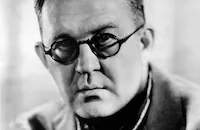
John Ford
Cast
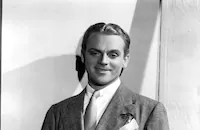
James Cagney

Corinne Calvet

Dan Dailey

William Demarest
Craig Hill

Robert Wagner

Marisa Pavan
Casey Adams

James Gleason
Wally Vernon

Henri Letondal

Henry Morgan
Fred Libby
Ray Hyke
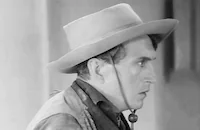
Paul Fix
James Lilburn
Dan Borzage
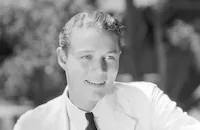
Bill Henry
Henry Kulky
Jack Pennick
Stanley Johnson
Ann Codee
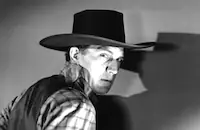
Tom Tyler
Olga Andre
Barry Norton
Luis Alberni
Torben Meyer
Alfred Zeisler
George Bruggeman

Scott Forbes
Sean Mcclory
Charles Fitzsimons
Louis Mercier
Mickey Simpson
Fred Kennedy
Billy Jones
Richard Monohan
Kenny Williams
Gene Ray
Freeman Fowler
Lee Macgregor
Don Garner
Robert Preble
Peter Ortiz
Chad Mallory
Harry Carter
Michael Dugan
Paul Bryar
George Davis
Louis Gasnier
Fred Brune
Arno Frey
William Yetter Sr.
Tina Blagoi
Jay Hall
Arlyn Loynd
Richard Shackleton
Jack Weeden
Richard Webster
George Washburn
Bill Strickland
Bob Schwartz
George Sawaya
John M. Reed
Anthony Raymond
Bob Odom
Robert Mccaffery
Carroll David Hurley
Budd Garrett
Jack Drummond
Gene Corso
John Caler
Crew
Jean De Betz
Alfred Bryan
Tanis Chandler
Billy Daniel
Eliot Daniel
George W. Davis
Leonard Doss
Henry Ephron
Phoebe Ephron
Ray Evans
Fred Fisher
Roger Heman
Joe Hindes
Jack Judge
Ray Kellogg
Charles Lemaire
Winston Leverett
Thomas Little
Jay Livingston
Joe Macdonald
Joe Mccarthy
Alfred Newman
Ben Nye
Jack Pennick
Lew Pollack
Edward Powell
Erno Rapee
Stuart Reiss
Sol C. Siegel
Wingate Smith
Dorothy Spencer
Edward Stevenson
Lyle Wheeler
Harry Williams

Film Details
Technical Specs

Articles
Sean McClory (1924-2003)
Born on March 8, 1924 in Dublin, Ireland, he became a leading man at the famous Abbey Theatre in the early '40s and relocated to the United States shortly after World War II. His first roles were small bits as a police officer in two RKO quickies: Dick Tracy's Dilemma and Dick Tracy Meets Gruesome (both 1947). He eventually graduated to more prestigious pictures like The Glass Menagerie (1950), Les Miserables (1952) and John Ford's The Quiet Man (1952).
After a few more supporting roles in quality pictures: Niagara (1953); the sci-fi chiller Them! (1954); and for John Ford again in The Long Gay Line (1955), McClory turned to television. He kept busy for several years with guest roles in a variety of popular shows: Bonanza, Wagon Train, Rawhide, Gunsmoke, The Outer Limits (1964) and countless others. By the mid-'60s, McClory became slightly more heavy-set, and began tossing off variations of jovial, "oirish" blarney for, yet again John Ford in Cheyenne Autumn (1964); and in a string of Disney pictures: Follow Me, Boys! (1966, his best role, a moving performance as the alcoholic father whose behavior alienates his son, played by a 15-year old Kurt Russell); The Happiest Millionaire (1967), and The Gnome-Mobile (1967), before he returned to television. His final role was in John Huston's acclaimed Irish opus The Dead (1987). He is survived by his wife, Peggy Webber McClory.
by Michael T. Toole

Sean McClory (1924-2003)
Quotes
What about those three men who were supposed to go up to Le Mans to get the Croix de Guerre?- Lt. Moore
Oh, yeah. Yes, yes. All right, get 'em out of the guardhouse and have 'em take a bath and send 'em over with an MP escort.- Captain Flagg
Quirt loves the bottle, and when he's drunk he is the lousiest, filthiest tramp that ever wore a uniform. He's even worse than I am, and you know I don't allow anybody to get as bad as that.- Captain Flagg
It's a lousy war, kid...but it's the only one we've got.- Captain Flagg
Trivia
This version uses almost no dialogue from the original play and was originally intended to be a musical.
Notes
The working title of this film was Charmaine. According to a May 1951 Hollywood Reporter news item, the film was originally to be a musical with Micheline Prelle starring as "Charmaine." Although contemporary sources reported that the song "Charmaine," written by Erno Rapee and Lew Pollack, was to be sung in the film by Dan Dailey and James Cagney, it appears only as background music in the completed picture. ["Charmaine" was an important part of the score for the 1926 version of What Price Glory.] A number of other songs announced for inclusion in the picture also did not appear in the released film. According to modern sources, Cagney signed on as a cast member in the belief that the picture was to be a musical, but director John Ford, who had directed the play in Hollywood in 1949, did not want to turn the material into a musical. Modern sources also note that Ford had hoped to cast John Wayne, who had appeared in the 1949 run of the play, in the picture. Although Hollywood Reporter news items include the following actors in the cast, their appearance in the completed picture has not been confirmed: Bill Scully, Mae Marsh and Walter Vernon, the father of Wally Vernon. Contemporary sources note that the picture was partially shot on location at the Marine base in Camp Pendleton, CA.
A modern source includes Paul Guilfoyle in the cast, but he was not in the viewed print. The picture marked the screen debut of Marisa Pavan, who was the twin sister of actress Pier Angeli. Fox Film Corp. first filmed Maxwell Anderson and Laurence Stallings' play in 1926. The earlier version was directed by Raoul Walsh and starred Victor McLaglen, Edmund Lowe and Dolores Del Rio. McLaglen and Lowe reprised their roles for Fox in three sequels featuring the characters of "Flagg" and "Quirt": the 1929 picture The Cock-Eyed World, directed by Raoul Walsh; the 1931 film Women of All Nations, also directed by Walsh; and the 1933 release Hot Pepper, directed by John Blystone (see AFI Catalog of Feature Films, 1921-30 and AFI Catalog of Feature Films, 1931-40). Although a January 20, 1947 Los Angeles Times news item reported that independent production company Enterprise was interested in acquiring the property as a starring vehicle for William Conrad, that production was never realized.















